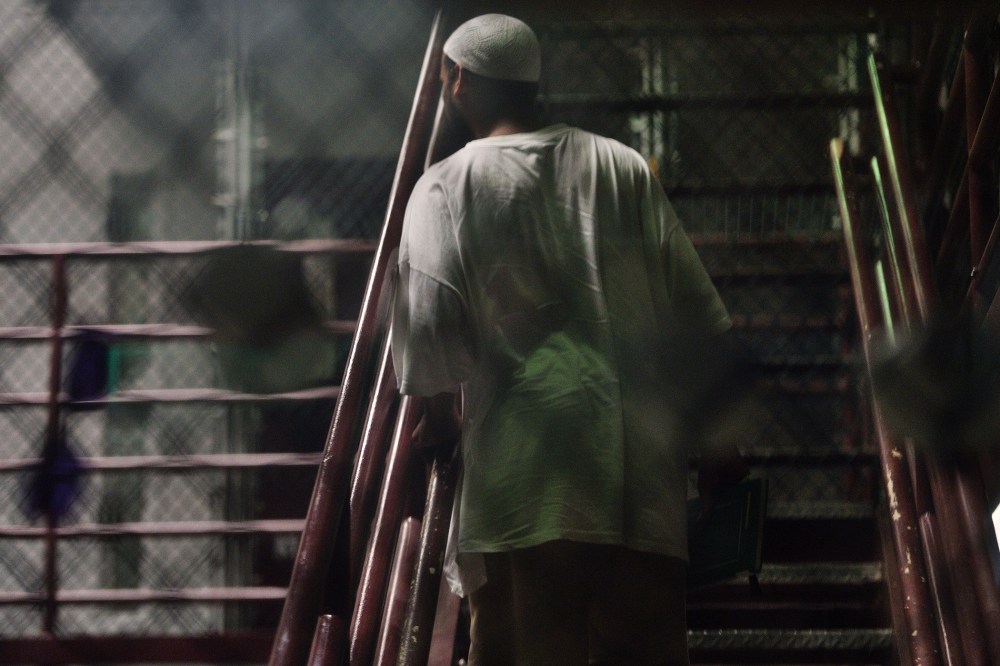The past week has been a roller coaster ride for the Guantanamo detainees suing the Obama administration over their treatment by the prison camp’s guards and medical personnel.
On May 17, a federal judge temporarily barred the military from assaulting, shackling and force-feeding a civilian detainee who has stopped eating to protest his decade-long imprisonment without charges or due process. Then, on May 21, the same judge, Gladys Kessler, ordered the government to hand over medical records and videotapes it had sought to keep secret from the prisoner, his lawyers and the court. Now, as the week winds down, Judge Kessler has added issued two more rulings on the case of Abu Wa’el Dhiab, a Syrian civilian who was rounded up by bounty hunters and turned over to U.S. authorities in the aftermath of 9/11.
One of the rulings, issued Friday morning, gives the Obama administration deadlines for releasing the newly ordered evidence. The government has until June 10 to turn over all of Dhiab’s medical records dating back to April 2013. And by June 13, it must surrender copies of 34 videotapes, shot over the same period, which show prison guards violently extracting him from his cell and pinning him to a restraint chair to be forcibly fed through the nose. The order also gives the Justice Department until June 10 to list all protocols governing the forcible feeding of Guantanamo prisoners—another request the Obama administration had resisted.
The other new order, which Kessler signed Thursday night, lifts the May 17 restraining order that blocked the government from force-feeding Dhiab while the court resolved the disputes over evidence. Saying the administration had given her an “anguishing Hobson’s choice,” Kessler declared she could not make the “complex medical decisions necessary to keep Mr. Dhiab alive” and would therefore allow the military to resume the force feedings—“even though Mr. Dhiab may well suffer unnecessary pain.”
While lifting her temporary restraining order, Kessler accuses the administration of “intransigence,” saying the Defense Department could have resolved the issue peacefully by sparing Dhiab the shackles and restraint chairs and by leaving his nasal tube in place rather than gratuitously reinserting it each day.











